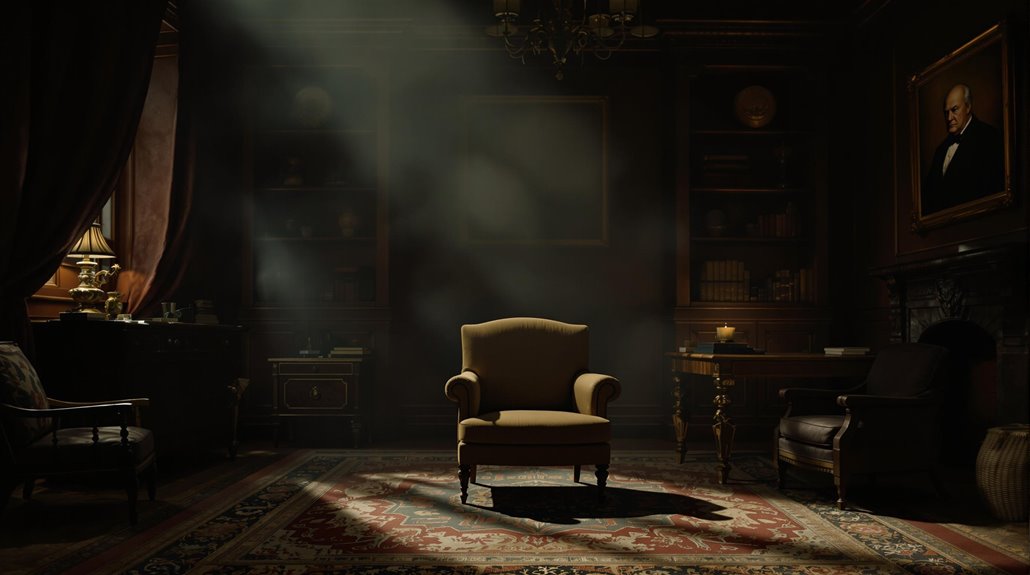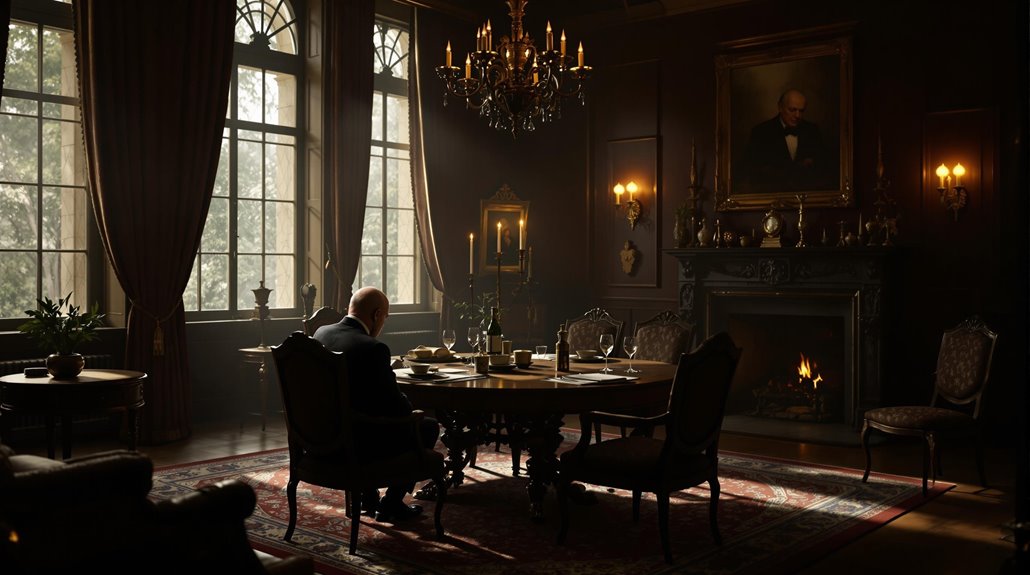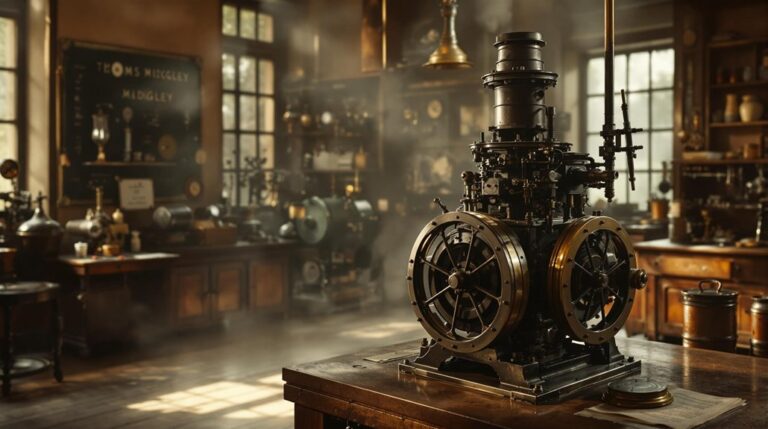Winston Churchill’s Post-War Defeat: Why Voters Turned on Him
Have you ever wondered how a celebrated war hero could fall from grace so quickly? Winston Churchill's defeat in the 1945 election stands as one of history's most dramatic political reversals. You'll find that while he masterfully guided Britain through its darkest hours, he couldn't translate his wartime appeal into peacetime leadership. The story behind his stunning loss reveals a complex interplay of public expectations, social change, and a nation's evolving priorities in the aftermath of global conflict.
The Height of Churchill's Wartime Popularity

While leading Britain through its darkest hours of World War II, Winston Churchill achieved unprecedented levels of public support and admiration. His wartime speeches rallied the nation, with iconic phrases like "their finest hour" becoming battle cries that united the British people.
His role as Minister of Defence allowed him to maintain direct control over military operations and decision-making. You'd find him anywhere there was damage from German bombs, personally visiting affected sites and victims to boost morale during the Blitz.
Churchill's leadership style fostered national unity as he formed a coalition government and worked tirelessly to maintain Allied relationships. His approval ratings soared to 83% as he became the living symbol of British resistance. Despite his immense popularity during wartime, he had never won an election before facing the voters in 1945.
Wherever he went, crowds celebrated him as the world's most respected statesman. His personal dedication to the war effort made him the embodiment of Britain's determination to defeat Nazi Germany.
From War Hero to Political Candidate
Although Churchill had masterfully steered Britain through the war, his shift to political candidate in 1945 proved far more challenging.
Despite his wartime legacy and charisma, he struggled to connect with voters on domestic issues that now dominated their concerns.
You'd have seen a different Churchill on the campaign trail – one whose message focused heavily on foreign policy while underestimating the public's appetite for social reform.
His background as a former Home Secretary who had previously championed welfare reforms and workers' rights made his conservative stance even more perplexing to voters.
His warnings against socialism and emphasis on his wartime achievements didn't resonate with voters who were looking ahead, not behind.
While they respected him as a war hero, many felt he wasn't the right leader for peacetime challenges.
Churchill's campaign revealed a disconnect between his traditional conservative values and the electorate's desire for dramatic domestic change and a thorough welfare state.
Labour's Vision for Post-War Britain
In stark contrast to Churchill's backward-looking campaign, Labour's "Let Us Face the Future" manifesto captured the nation's yearning for radical change.
You'll find that Labour policies directly addressed the five major challenges facing post-war Britain: want, disease, ignorance, squalor, and idleness.
Their socialist vision promised to transform British society through practical, common-sense solutions. They'd nationalize key industries, create the NHS, and expand social security while ensuring full employment. The success of their approach helped establish a post-war consensus that would dominate British politics for decades to come.
You can see how their manifesto resonated with voters by promising free secondary education and a state-directed housing program to rebuild war-torn communities.
Labour understood that wartime experiences had shifted public attitudes. They weren't just offering policies; they were presenting hope for a new social order where community interests would triumph over private profit, speaking directly to returning servicemen and working families. Their message was so powerful it earned them a 146-seat majority in Parliament.
The Conservative Campaign's Fatal Flaws
Despite Churchill's towering wartime achievements, the Conservative campaign proved deeply flawed in its strategy and execution. The party's overreliance on Churchill's personal popularity and war hero status led to major campaign missteps.
The Conservative Party's reputation suffered heavily from their legacy of pre-war appeasement policies. Voters were particularly influenced by the Army Bureau of Current Affairs that had educated soldiers about social justice during wartime. You'll notice they based their entire approach on the "Vote National – Help him finish the job" slogan, neglecting vital domestic issues that mattered most to voters.
The campaign's rhetoric further fueled voter disillusionment. Churchill's inflammatory comparison of Labour's policies to requiring a "Gestapo" backfired spectacularly.
The Conservatives' focus on foreign policy and defense, rather than addressing immediate post-war concerns, showed how out of touch they were with public sentiment. Their pessimistic messaging and resistance to government-led social reforms ultimately failed to resonate with a population keen for domestic change and reconstruction.
Pre-War Conservative Legacy Returns to Haunt

While Churchill's personal wartime leadership had been exemplary, the Conservative Party couldn't escape its problematic pre-war legacy during the 1945 election. The appeasement legacy of Neville Chamberlain's government cast a long shadow, and voters hadn't forgotten the party's role in the Munich Agreement.
Conservative accountability for pre-war decisions became a major liability, highlighted by influential critiques like "Guilty Men." Churchill's shift to Liberals early in his career highlighted his own complex relationship with the Conservative Party.
You could see four main factors that kept this legacy alive:
- The party's failure to adequately prepare Britain for war
- Their willingness to negotiate with Hitler despite clear warning signs
- The public perception that Conservatives had appeased Nazi aggression
- The stark contrast between Churchill's opposition to appeasement and his party's support for it
These pre-war mistakes ultimately contributed to the Conservative defeat in 1945.
The Stunning Electoral Upset of 1945
The 1945 general election delivered one of the most shocking political upsets in British history, building upon voter dissatisfaction with pre-war Conservative policies.
You'd have found the election dynamics particularly surprising, given Churchill's towering 83% approval rating just months before the vote and widespread expectations of his victory in the press.
Labour's triumph was decisive – they secured 393 seats with nearly half the popular vote, achieving the largest swing since 1800.
Churchill's ill-advised comparison of Labour to the Nazi Gestapo during campaigning severely backfired and damaged his credibility.
 first Labour majority in the House of Commons.
first Labour majority in the House of Commons.










